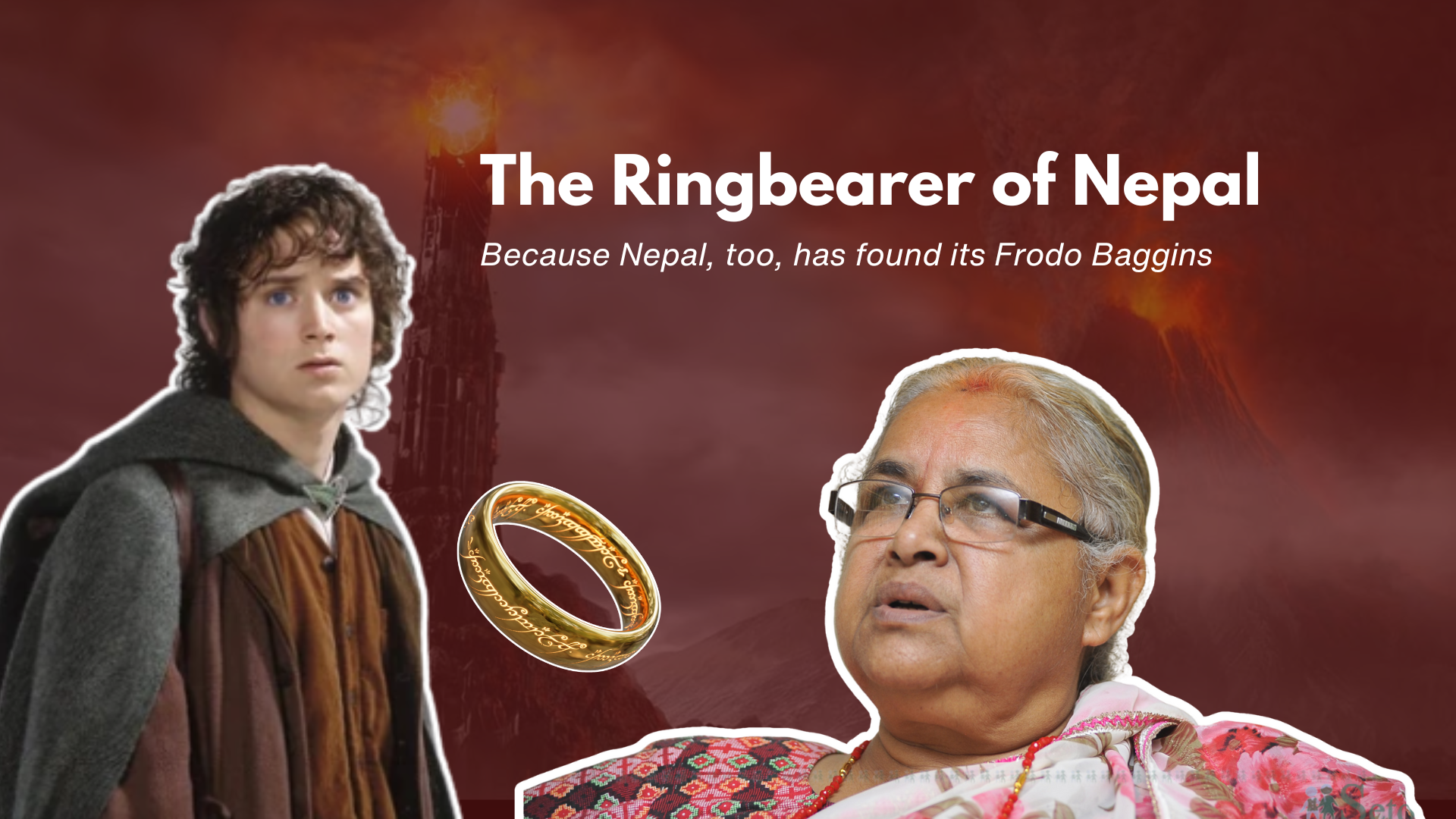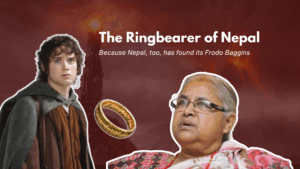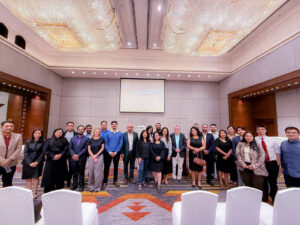Now, she returns not as a savior, but as a caretaker; a reluctant leader in a country that has had too many eager ones. Like Frodo, she did not ask for the Ring; it found her. And that, paradoxically, is what makes her the only one who can carry it.
Sorry if this article is too nerdy, but sometimes it takes a fantasy story to explain the mess we live in. Nepal right now feels like something straight out of The Lord of the Rings, a small country surrounded by forces bigger than itself, tired of seeing power pass from one hand to another, and suddenly, somehow, led by someone who never wanted to lead at all.
If you haven’t read Tolkien, here’s the short version. There’s a Ring, the One Ring: forged by a dark lord named Sauron. It’s beautiful, precious, and utterly corrupting. Whoever wears it gains immense power. You can control others, change the world, even bring peace. But there’s a catch: the more powerful you are, the faster it destroys you. The Ring feeds on ambition. It whispers to kings, warriors, and wizards alike, telling them that they are different, they will use it wisely. And that’s how it wins.
Even Gandalf, the wisest of all, refuses to touch it. He says, “Do not tempt me. For I would use this Ring from a desire to do good, but through me, it would wield a power too great and terrible to imagine.”
That’s why Frodo had to be the ring bearer. A small, quiet hobbit from a peaceful corner of the world, who loved good food and calm evenings more than glory or fame. He didn’t want power; he was content without it. But when the burden came to him, he accepted it, not to rule, but to carry. Frodo’s strength wasn’t his courage or intelligence. It was his disinterest. Power couldn’t seduce him because he had no hunger for it. He bore the Ring because he had to, not because he wanted to.
And that, strangely enough, brings us to Nepal in 2025.
After weeks of protests, young people marching through dust and tear gas, tired of the same old political tricks, the system has finally cracked. The traditional parties have burned through their credibility. The kings of yesterday are gone. So, in a decision that feels almost poetic, the country has turned to someone who had long stepped away from the game: Sushila Karki, the former Chief Justice.
She didn’t campaign for it. She didn’t ask for it. She was living a quiet, retired life, far from the noise of power. And yet, she has been chosen to lead Nepal as interim Prime Minister, to conduct elections, stabilize the chaos, and perhaps, restore a little faith.
And yes, some people are furious about it. They say she’s “not political.” They say she “doesn’t understand power.” They say she “doesn’t know how to manage alliances.” But maybe that’s exactly what makes her perfect for this moment. Because for once, Nepal does not need a politician who knows how to hold onto power. It needs someone who knows how to let go of it.
We’ve seen what power does here. It turns visionaries into gatekeepers, reformers into protectors of the status quo. Every leader begins by saying “I’ll only stay until things are better,” and ends by convincing us that things will collapse without them. Power, in Nepal, behaves just like the Ring. It doesn’t corrupt through greed alone, it corrupts through self-importance.
And that’s why this moment feels different. Sushila Karki has already worn power once. She was the Chief Justice, the first woman to ever hold that position, and she walked away from it untarnished. She faced smear campaigns, political pushback, and personal attacks, and yet, when it was over, she returned to a life of quiet dignity. She didn’t start a party, didn’t seek office, didn’t build an empire of influence. She left. That kind of restraint is rare enough to be revolutionary.
Now, she returns not as a savior, but as a caretaker; a reluctant leader in a country that has had too many eager ones. Like Frodo, she did not ask for the Ring; it found her. And that, paradoxically, is what makes her the only one who can carry it.
She doesn’t need to prove herself. She doesn’t need to win. She just needs to carry this burden across the fire, to see the country through the chaos, hold the line, and then walk away again. No grand vision, no personal legacy, no monument to herself. Just duty.
And maybe that’s what Nepal needs more than anything right now: someone uninterested in power. Because the problem has never been lack of leadership, it has been the excess of ambition. Everyone wants to rule. Few want to serve. Everyone wants to wear the Ring. Almost no one wants to carry it.
Sushila Karki’s appointment is not an accident of circumstance. It’s a quiet correction, a moment where history, exhausted by the hungry, turns to the unwilling. She may not command armies or dominate headlines, but that’s exactly the point. Power bends to those who chase it; it bows before those who refuse it.
And perhaps, just perhaps, Nepal will finally learn what Middle-earth already knew:
that true strength lies not in those who seek the throne, but in those who must be persuaded to sit on it.
Because the Ring will always exist, in our politics, our ambitions, our fears. But every once in a while, it falls into the hands of someone who can hold it without being owned by it.
And in this fragile moment, when the country needs to remember what honesty feels like, it could not have found a better bearer than her.
Because only those who never wanted the Ring can be trusted to carry it through the fire.



